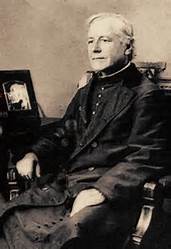HOMILY WEEK 08 04 – Year II
Living in and Proclaiming the Light of Christ
(1 Pt 2:2-5,9-12; Ps 100; Mk 10:46-52)
**************************************
Close your eyes and keep them closed for a minute – and imagine staying like that for the rest of your life – blind and unable to see.
The powerful readings today invite us to come to Jesus, who called us out of darkness into his marvelous light; to see ourselves in a new light, to grow into salvation, and then to proclaim who Jesus is to the world.
Bartimaeus, the blind beggar in the gospel, is us, in two different ways: First, his blindness is a symbol of our own blindness, the way our society has lost its way, sliding into the darkness of prideful unbelief and stubborn self-will, that darkness mentioned by St. Peter in the first reading.
The darkness that comes to mind is multi-faceted: our governments have legalized the killing of our unborn children through abortion, and the killing of our elders through MAID; we have taken God out of the public domain, and Christ out of the classroom; numerous new atheists claim there is no God, without realizing they have over-attached themselves to the false gods of possessions, prestige, power and pleasure; countless numbers of good people have lost any sense of prayerful devotion and lack interest in the highest human activity of worship; an alarming low birth rate means we are not reproducing ourselves; many fear a life-long commitment in marriage, there is much sexual promiscuity within a hook-up culture; we have developed an ideology of choosing and changing our gender at will, and have emptied suffering of any meaning and purpose, condemning us to try to avoid it at all costs. What is lamentable is that we do these things without really seeing what we are doing to ourselves.
In the gospel, the blind beggar Bartimaeus stands in stark contrast. He once was able to see, but for some reason had lost his sight. Yet without eyes to see physically, he more than any others crowding around him and trying to quiet him down, was able to see Jesus for who he was. Within his blindness, the faith of Bartimaeus in Jesus was strong and total – despite resistance from the crowd around him, he cries out to Jesus with such complete faith that, even before the healing occurs, he knew he would no longer need his beggers blanket, throws off that only remnant of security he has, comes to Jesus, and is healed, given back his sight. Then he follows Jesus along the way of discipleship.
Bartimaeus know who he was, a blind beggar, and knew his need for healing. St. Peter in that beautiful first reading informs us of our identity – by our baptism and faith in Christ Jesus, we are newborn infants, living stones making up a spiritual building, a chosen race, a royal priesthood, a holy nation, God’s own people called out of that darkness into God’s marvelous light. However, Peter reminds us that we are also exiles and aliens, not meant to be dragged down by the darkness of this world, but like bright lights shining in that darkness, revealing who Jesus is for us and the world.
By healing Bartimeaus, Jesus reveals himself to be the Messiah, the anointed one sent to restore creation to an even higher, more excellent level of existence than before the fall of humanity. As the Messiah, Jesus came to redeem and to sanctify, to forgive and to heal. Like Bartimaeus, we need only place our faith in him, throw off whatever is holding us back, come to him for forgiveness of our sins, and healing of our defects of character. This is how we can, as St. Peter advises, “grow into salvation,” and then follow Jesus along the road of a new life, of discipleship.
St. Eugene OMI
St. Eugene de Mazenod, whom we celebrated as a church on May 21st, is an example for us. A troubled youth from a broken home who flirted with the world’s selfish pleasures and allurements, he experienced God’s mercy and unconditional love one Good Friday. That experience transformed him. He was called out of the darkness of his struggling, revolutionary French society, into a life of joyful praise, love and zeal, evangelizing the poor with the help of other priests whom he eventually formed into the Missionary Oblates of Mary Immaculate.
Fr. Albert Lacombe OMI, a legendary member of his community, was a good example of a joyful missionary disciple, fearless, facing all the odds, spreading the good news of God’s love and our identity, secure in that love.

Fr. Albert Lacombe OMI
The Eucharist we celebrate now is a faith-filled, joyful celebration of the mercy and love of God, calling us out of darkness into the marvelous light of God’s love.
Let us celebrate who Jesus is, and who we are because of his love; continually come into God’s presence filled with joy, and spread that Good News of mercy and joy to a world that truly needs it, as did both St. Eugene and Fr. Lacombe.



